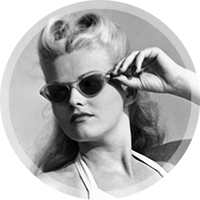

For the past week I’ve been on vacation at Disney World. I have, so far, learned three things. One, having your kid’s summer end only after Labor Day means you can take a family trip pre-school and post-peak season; two, Disney’s user experience is perfection to the point of being almost scary; and three, I’m old enough to embrace lightness and frivolity without self-consciousness or dismissive cynicism.
Cynicism is something I have been thinking a lot about recently. Our modern culture is steeped in it. A year or so ago, someone wrote a think piece about the scourge of cultural “irony,” which I saw heavily linked by people age 30+, derided by 20-somethings and ignored by anyone younger. At the time, I was ambivalent, because I rather like true irony and I feel it’s too often misunderstood and misused. But now I realize that the author of that piece was more appropriately targeting not superficial irony but profound cynicism. Which I have become convinced is indeed a scourge.
We treat cynicism as a mark of knowledge and intelligence and the lack of it, demonstrated by optimism, cheerfulness and unironic humor, as simple-mindedness or ignorance. Sometimes cynicism does come from a higher level of understanding. Sometimes optimism is born of ignorance. But making these judgments automatically, placing each person or expression in one of two designated buckets, is missing a fact vital to human growth and experience: the fact that one of the most admirable qualities humans have is the ability to understand the bad and still believe in the good in spite of that.
A resistance to cynicism is hard earned. My optimism and lightness does not come from ignorance but from enough long years of work and suffering to know that the only weakness is allowing that work and suffering to shape you into its own image. I’ve learned that I owe it to my daughter to demonstrate strength beyond cynicism. This doesn’t mean you dismiss or blind yourself to reality, but that you make the effort to understand all of reality, which includes your and others’ ability to change reality.
I have always loved studying fairy tales, mythology and folklore. These are stories people have told for centuries that describe the darkness of human circumstance and desire as well as the brightness of human resolution and heroics. Heroes are not perfect people, but people who understand the process and the cost of growth, and who continue on regardless. It’s a worthwhile goal to finally grow old enough to believe again.